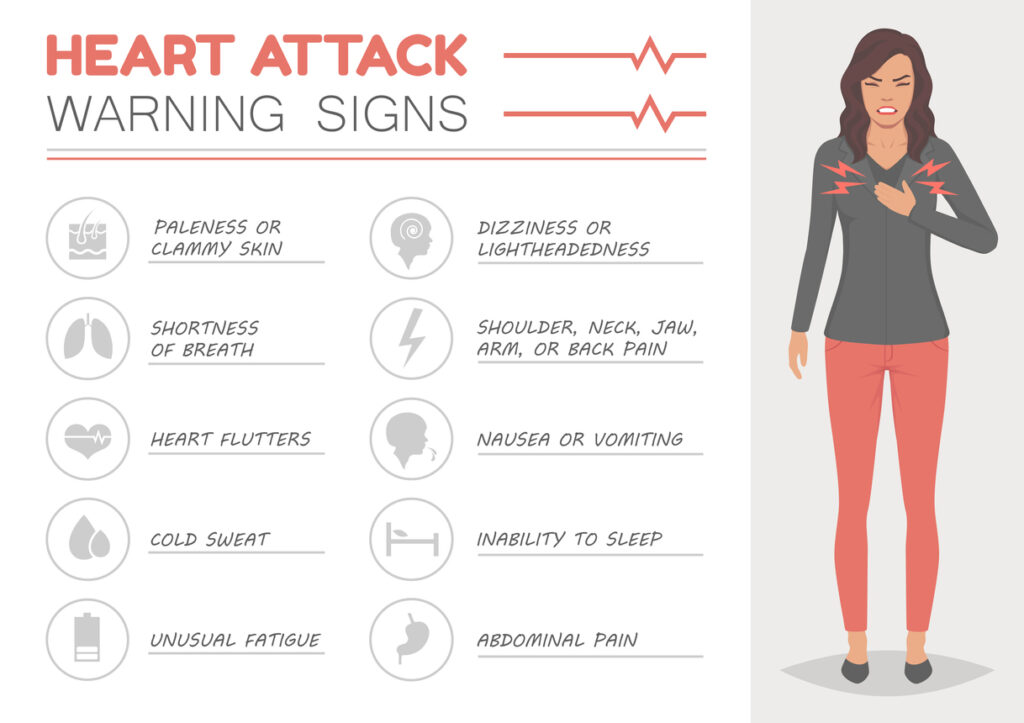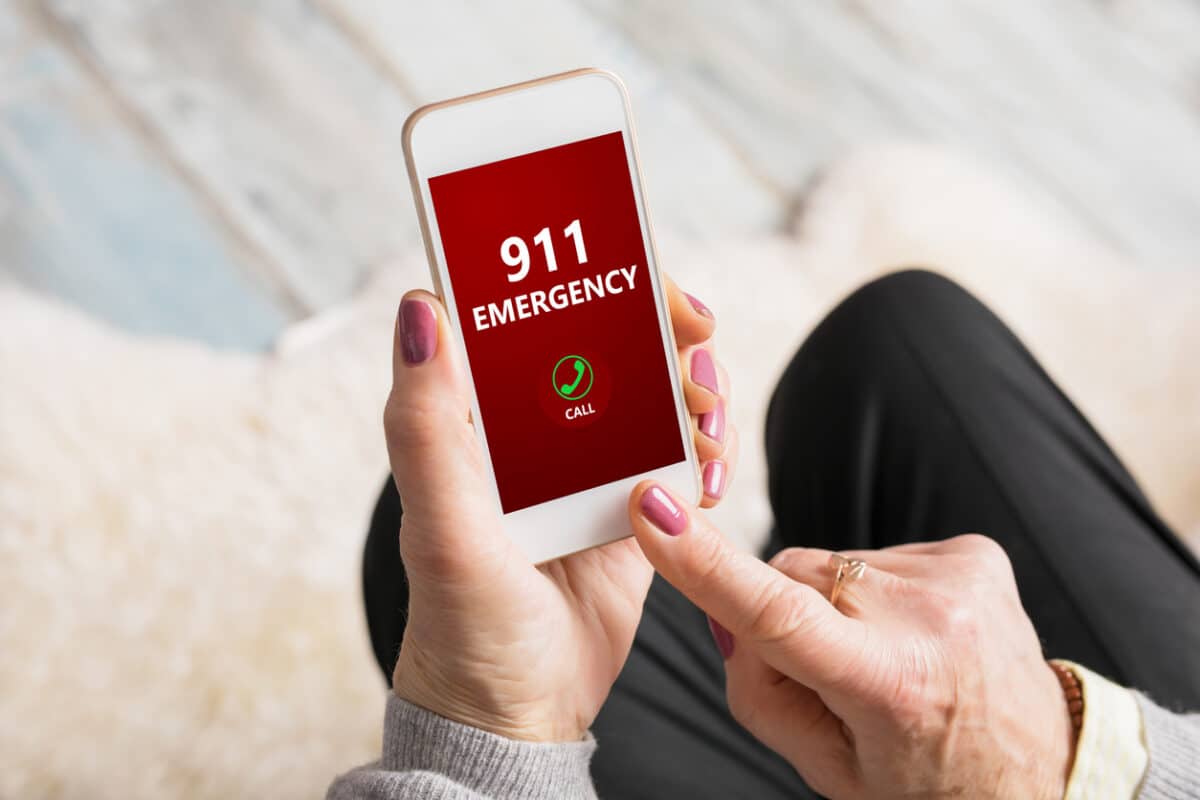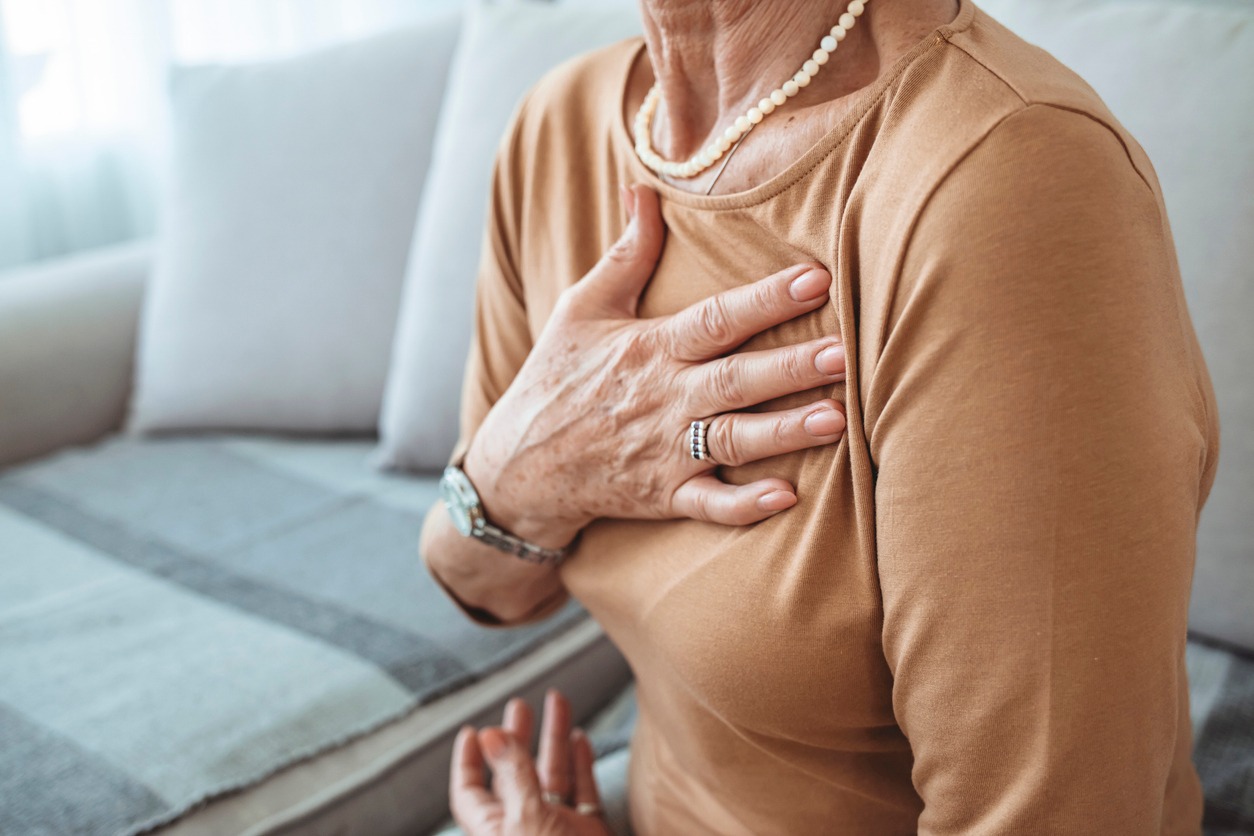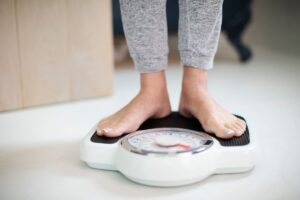The leading cause of death for women over 50 in the United States is heart disease. Heart attacks can happen at any time, and more seniors than ever are spending their golden years living independently. According to the National Council on Aging, women are nearly twice as likely to live alone as men, which leaves women especially vulnerable to being alone when experiencing a heart attack. Still, there are steps you can take to help you survive a heart attack alone and increase your chances of thriving afterward.
Triggers and Timing
While cardiac arrest can happen at any time, there are certain times when it is more likely. Physical exertion can overwork the heart, especially after a long hiatus from exercise. Large or extravagant meals can make blood more likely to clot. Intense emotions, either good or bad, can also place this vital organ under intense stress.
Heart attacks are also reported as spiking in the early morning hours, particularly between 6 a.m. and noon. Theoretically, these spikes may be due to the release of cortisol upon waking, the natural increase in the blood protein PA1, or other early morning stressors. They have pinpointed no single cause for the prevalence of morning heart attacks to date, and some recent studies even indicate that morning heart attacks aren’t as common as once thought.
Symptoms of a Heart Attack
Men and women may experience cardiac arrest differently. Because a man’s cardiovascular system and a woman’s look much the same, it is easy to overlook the small but significant structural differences.
Pain or discomfort in the chest area is the most prevalent heart attack symptom for men and women. However, women are considerably more likely than men to experience a silent heart attack. This makes it doubly important to be aware of additional symptoms.
You may experience:
- Chest pain or pressure — especially pain that lasts for more than a few minutes or goes away and returns
- Pain in either or both arms, or in the upper back, neck, jaw, or stomach
- Shortness of breath
- Breaking out in a cold sweat
- Dizziness or light-headedness
- Nausea or vomiting with no explanation
- Tightness behind the breastbone
- Unexplained fatigue
- Unusual sleep disturbances
- Fainting
Heart attacks tend to be harder on women because they often have subtler symptoms, which can lead to delayed treatment. If you show any of the symptoms listed above or have any other reason to suspect a heart attack, take action right away. Follow the steps to survival listed below, starting with steps 1 and 2: stop what you’re doing, and call 9-1-1.
7 Steps to Help Survive a Heart Attack
Stop what you’re doing
If you are driving, pull over to the side of the road in case you lose consciousness. Distance yourself from any unsafe situations or activities. If you are currently engaging in an activity that is likely to raise your heart rate, stop.
Call 9-1-1

Calling 9-1-1 gets an ambulance dispatched to your location as quickly as possible. It may seem expedient to drive yourself to the hospital or get a ride from an Uber or a friend, but contacting an ambulance has some important advantages. Plus, you don’t want to risk raising your heart rate any more.
Ambulances come equipped with much of the equipment you find in an emergency room, as well as trained medical professionals. Calling an ambulance means that testing and treatment can often start as soon as they reach you, saving precious time and heart muscle.
Contact someone you trust
After you have contacted 9-1-1, and only if the dispatcher says it’s okay to do so, put them on hold and contact someone you trust. Try to contact a nearby friend or family member to stay by your side. This step ensures that someone is there to talk to the dispatcher or perform CPR if you lose consciousness before medical personnel arrive.
If you cannot complete this step in just a few minutes, move on to the next step.
Take an aspirin
Although aspirin doesn’t halt a heart attack in progress, it does help to limit the damage by delaying the formation of additional blood clots.
You’ll want to get the aspirin into your system as quickly as possible, so chew the aspirin to break it down and get it into the bloodstream. Use uncoated aspirin if available, and chew one 325mg aspirin or four 80mg aspirin tablets in the event of a heart attack.
If prescribed, take nitroglycerin
If your doctor has prescribed nitroglycerin to you due to heart disease, now is the time to take it. This will make it easier for the heart to pump by opening up the coronary arteries.
Unlock your door
Make sure you unlock your door, so the paramedics can enter without obstruction. If you have the opportunity without raising your heart rate, contain any pets, so they don’t get underfoot or run out the front door.
Sit and wait
Stay calm while waiting for the paramedics to arrive. While it is natural to feel panic when experiencing a painful coronary event, using calming techniques to keep your heart rate slow and steady will help prevent further damage.
- Find a spot to sit along the wall, somewhere near the front door. This ensures you are easily spotted, even if you lose consciousness.
- Keep your knees bent and elevated. Positioning a pillow under your knees will help keep them in the correct place.
- People naturally take quick, shallow breaths when afraid, but this is counterproductive in this situation. Concentrate on taking deep, steady breaths, getting as much oxygen to your heart as possible.
A warning about “Cough CPR”
A possibly dangerous internet claim regarding a remedy known as cough CPR has been circulating in recent years. This unreliable advice states that those experiencing a heart attack can spur the heart into starting again by coughing violently or in a certain rhythm. The theory is based on a valid but rarely used technique, occasionally used in a medical setting.
Coughing as a way to regulate the cardiovascular system is not recommended as a treatment without direct instruction from a medical professional. Outside of rare and specific circumstances, cough CPR is likely to be ineffective. In some situations, this approach can actually harm someone by exacerbating an otherwise mild heart attack.
After the attack

Once you have recovered from your heart attack, your doctor will likely recommend a few changes to your lifestyle to prevent future attacks. Some of those suggestions may include:
- Obtaining a life alert device to wear
- Adjusting current medications or prescribing new ones
- Discussing and adjusting exercise routines
- Adopting a heart-healthy diet
- Prescribing nitroglycerin
- Seeking mental health guidance for reducing stress
One in five people who experience a first heart attack will be readmitted to the hospital for a second attack within just five years. Following your doctor’s advice for a heart-healthy life will strengthen your heart and help prevent future attacks.
Read Next:
Silent but Deadly: The Hidden Cardiovascular Risks Women Face After Menopause
A Healthy Heart Starts with a Healthy Mouth
One in Five Women Aged 55-75 Will Have A Stroke








